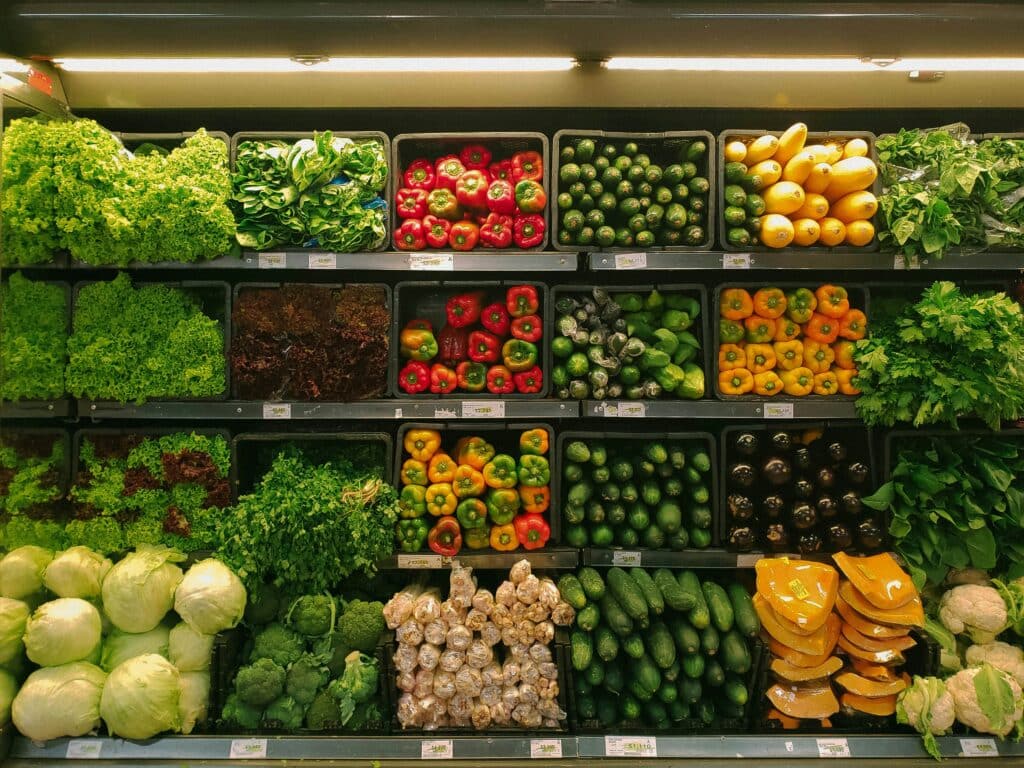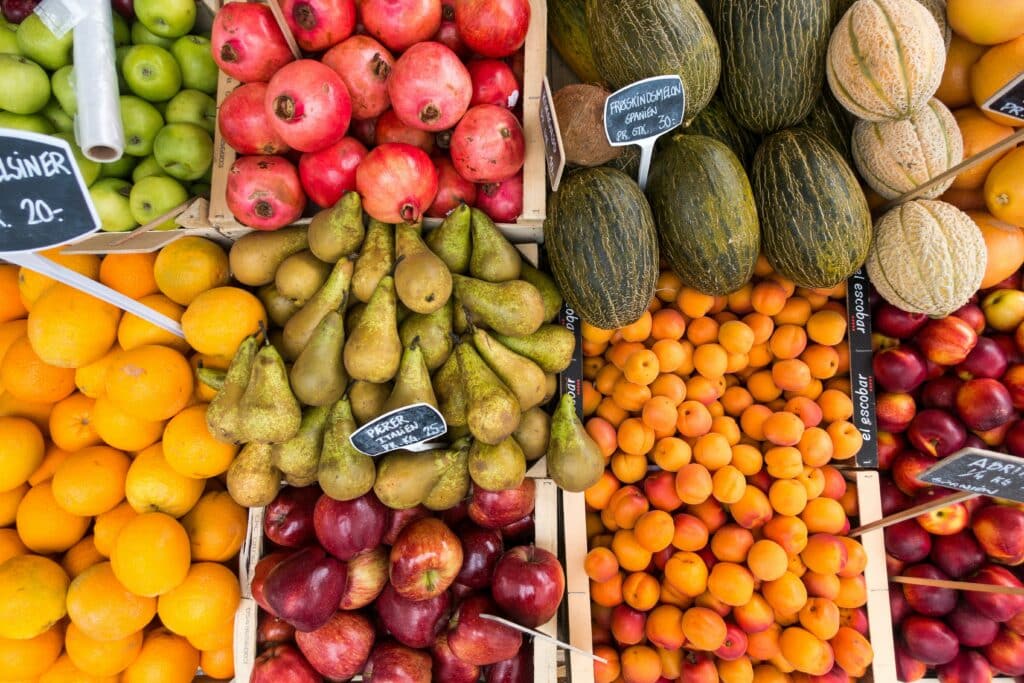
As health-conscious Floridians seek the best options for their wellness journey, two major grocery chains often come up in conversation: Publix and Whole Foods. Both stores have carved out their niches in the healthy food market, but which one truly delivers the best value for your health and wallet? Let’s dive into this comprehensive comparison.
Price Points: Breaking Down the “Whole Paycheck” Myth
Whole Foods Market
After Amazon’s acquisition, Whole Foods has worked to shed its expensive reputation. While prices remain premium for specialty items, basic organic produce and Amazon Prime member discounts have made healthy shopping more accessible.
Average price points:
- Organic produce: 10-20% higher than conventional
- Grass-fed meat: $8-12/lb
- Organic dairy: 30-40% higher than conventional
- Store brand (365) products: Comparable to conventional grocery prices
Publix
Florida’s beloved Publix offers competitive pricing on conventional items and frequent BOGO deals, even on organic products.
Average price points:
- Organic produce: 15-25% higher than conventional
- Grass-fed meat: $7-10/lb
- Organic dairy: 25-35% higher than conventional
- Store brand (GreenWise) products: Slightly lower than national organic brands
Does Organic Really Matter?
When deciding between organic and conventional products, consider these evidence-based factors:
The Real Benefits of Organic
- Reduced pesticide exposure: Organic produce contains 48% less toxic pesticide residues
- Higher antioxidant levels: Studies show 20-40% more antioxidants in organic produce
- Environmental impact: Organic farming practices reduce soil degradation and water pollution
- Stricter regulations: Organic certification prohibits synthetic pesticides, GMOs, and growth hormones
When to Prioritize Organic (The “Dirty Dozen”)
Most important for:
- Strawberries
- Spinach
- Kale
- Apples
- Grapes
- Peaches
When Conventional is Fine (The “Clean Fifteen”)
Save money on:
- Avocados
- Sweet corn
- Pineapple
- Onions
- Papaya
- Sweet peas (frozen)
The Bottom Line on Organic
Organic isn’t always necessary for every food item. Focus your organic budget on produce with edible skins and items from the “dirty dozen” list. For thick-skinned fruits and vegetables, conventional options are often just as healthy and more budget-friendly.
Product Selection and Quality

Whole Foods Strengths
- Extensive organic and non-GMO options
- Strict quality standards for artificial ingredients
- Wide variety of specialty diet products (vegan, gluten-free, etc.)
- In-house prepared foods with clear ingredient labeling
- Comprehensive bulk section for cost-effective shopping
Publix Strengths
- Fresh, high-quality conventional produce
- Strong GreenWise organic selection
- Excellent fresh meat and seafood departments
- Local Florida produce partnerships
- Traditional grocery variety with healthy alternatives
Local and Sustainable Sourcing
Whole Foods
- Detailed sourcing transparency
- Strong relationships with local farmers
- Clear sustainability ratings for seafood
- Emphasis on fair trade and ethical sourcing
- Seasonal rotation of local products
Publix
- Growing local produce program
- Partnership with Florida Fresh
- Sustainable seafood initiatives
- Support for regional farmers
- Focus on Florida-grown citrus and produce
Shopping Experience and Convenience
Store Layout and Organization
Whole Foods emphasizes its fresh departments with produce, prepared foods, and bulk sections taking center stage. Their layout encourages exploration of healthy options.
Publix follows a more traditional grocery layout but clearly marks healthy choices through their GreenWise sections and shelf labels.
Staff Knowledge
- Whole Foods: Extensively trained in nutrition and specialty diets
- Publix: Well-versed in general product knowledge with specific training for specialty departments
Store Locations
- Whole Foods: Primarily in urban and affluent suburban areas
- Publix: Widespread throughout Florida, more accessible in various neighborhoods
Health and Dietary Considerations
Special Diets
Whole Foods excels in:
- Vegan and vegetarian options
- Gluten-free products
- Paleo-friendly foods
- Keto ingredients
- Alternative flours and grains
Publix offers:
- Growing selection of plant-based products
- Basic gluten-free options
- Standard alternative diet choices
- Dedicated healthy living sections
Ingredient Standards
Whole Foods maintains strict standards prohibiting:
- Artificial colors and flavors
- High fructose corn syrup
- Hydrogenated fats
- Many common preservatives
Publix GreenWise products exclude:
- Artificial colors and flavors
- Some preservatives
- Certain synthetic ingredients
Making the Smart Choice for Your Health Goals
Choose Whole Foods When:
- You prioritize organic and specialty diet products
- Budget isn’t your primary concern
- You value extensive healthy prepared foods
- You’re looking for unique health food items
- You want more bulk buying options
Choose Publix When:
- You want to balance health and budget
- You prefer mixing conventional and organic shopping
- You value familiar store layouts
- You want strong BOGO deals on healthy items
- You need more convenient locations
The Verdict: Which Store Wins?
For Quality and Variety of Organic Products: Whole Foods
- Superior selection of organic and specialty items
- Stricter quality standards
- Better bulk buying options
- More extensive prepared foods section
For Value and Convenience: Publix
- Better everyday prices
- More store locations
- Excellent BOGO deals
- Strong conventional produce quality
Based on our comprehensive analysis, here’s the bottom line:
Choose Whole Foods if you’re deeply committed to organic, specialty products, and unique health food items. The higher prices are offset by unmatched variety and quality standards.
Choose Publix if you want a balanced approach to healthy shopping with better prices and more convenient locations. Their growing organic selection and strong BOGO deals make healthy eating more accessible.

